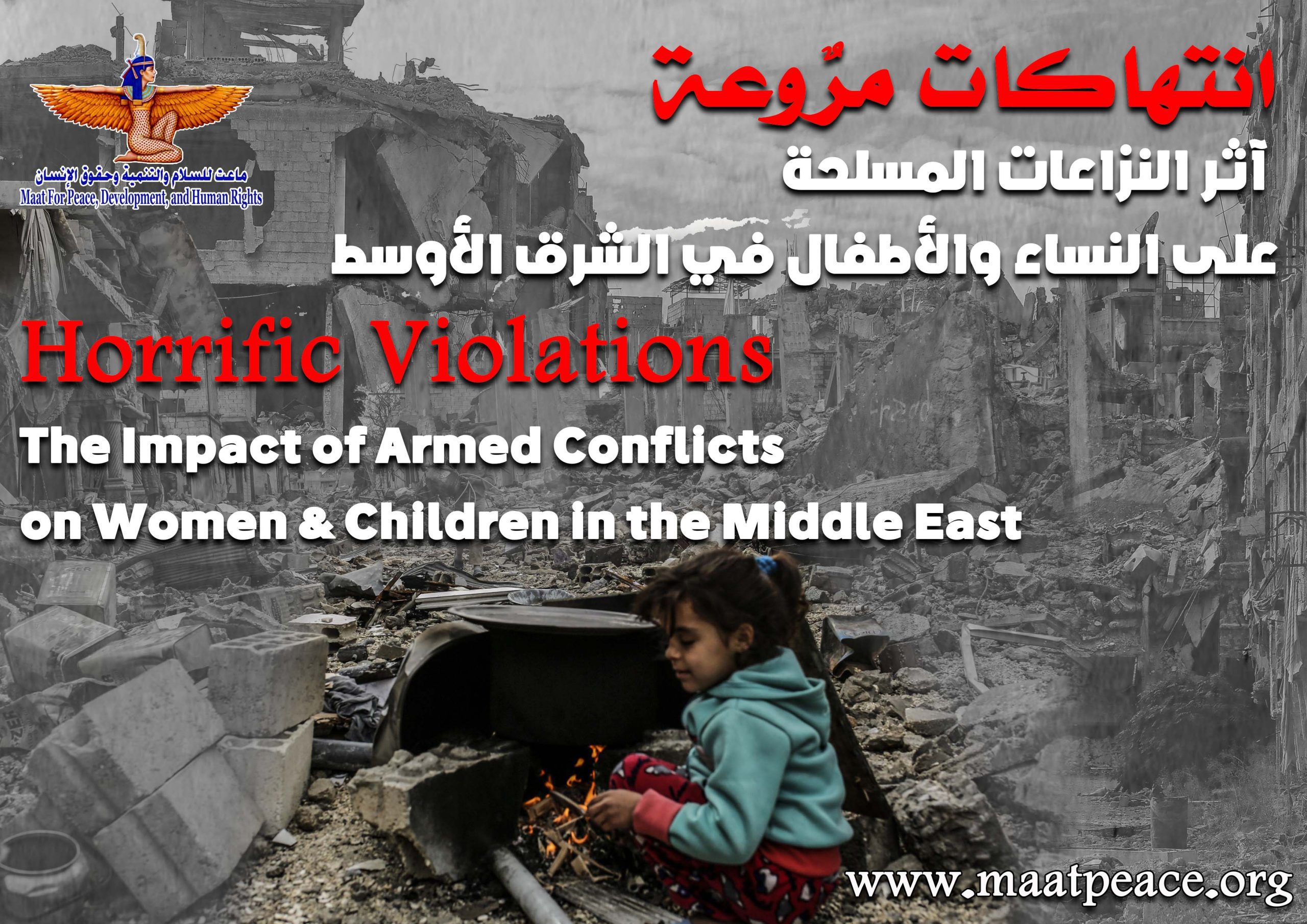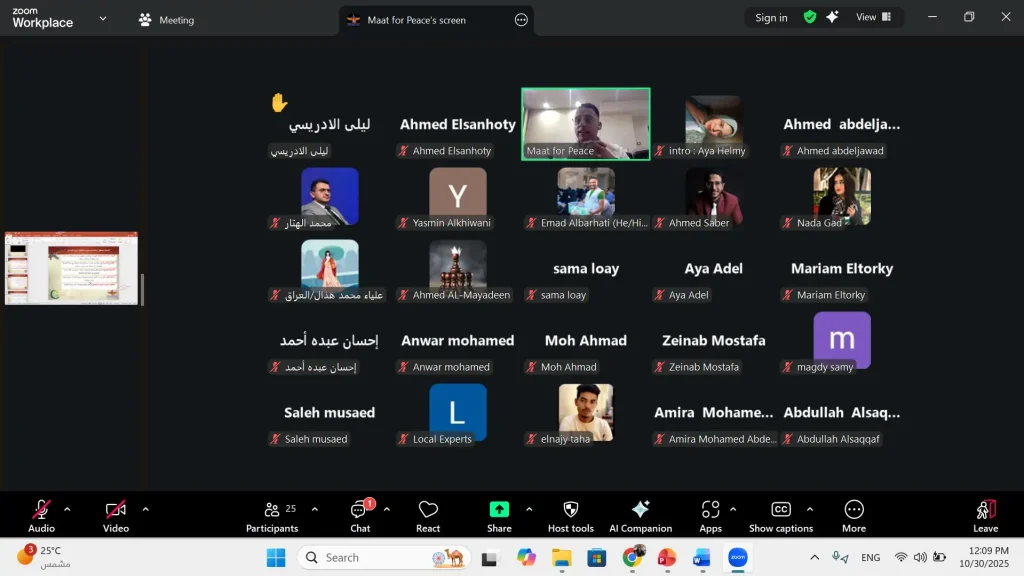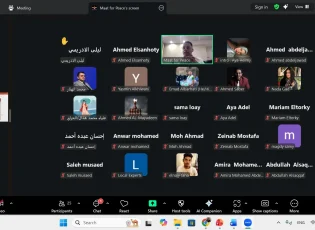A New Report by Maat Entitled: “The Impact of Armed Conflict on Women & Children in the Middle East”
Okeil: There are more than 40,000 violations against children in conflict zones in the Middle East
Ali Muhammed: We must search for new mechanisms that protect civilians, including women and children
Maat for Peace, Development and Human Rights released a new report entitled "Horrific Violations: The Impact of Armed Conflicts on Women & Children in the Middle East", which monitored and analyzed the unspeakable violations that women and children are subjected to in conflict areas in the Middle East. These violations are mainly represented by arbitrary detention, physical and sexual violence, in addition to the internal displacement of women, which is a direct result of these conflicts. As for children, the report highlighted the systematic targeting and extrajudicial killing of children, in addition to the forced recruitment of children in conflict areas, and the ensuing violations such as educational deprivation. Prior to that, the report clarified the legal framework for the protection of women and children in the context of armed conflict.
The report noted that over 230,000 civilians from 10 countries were killed last year in armed conflicts, more than half of this number are women and children. The Middle East region has topped the hotbeds of conflict in which the rights of women and children have been violated. Armed conflicts have dramatically increased human rights violations, thousands of civilians have been killed in these conflicts, and these conflicting parties have not distanced themselves from arbitrary practices and other human rights violations, especially those against women and children. From the end of December 2017 to February 2021, Yemeni women in Houthi-controlled areas has reportedly subjected to approximately 1,145 violations, varied between arbitrary detention and enforced disappearance. 280 women have enforcedly disappeared, and 295 female activists and education workers have been arbitrarily arrested. Moreover, about 270 women, engaged in humanitarian relief work, are held in prisons under the Houthis control. More than 300 minor women, under the age of 18, are extrajudicially detained in the prisons of Sana'a and its suburbs.
The report affirmed that there are nearly 50 million internally displaced people around the world, 30% of this number are in the Middle East and North Africa, of whom women and girls represent about 50%. In Libya, the number of internally displaced persons reached 301,407 as of July 2019, and in South Sudan, there are still 1.6 million internally displaced persons in the country, while Somalia has at least 2.7 million internally displaced persons as a result of the armed conflict, floods, and the desert locusts, the majority of them are women and children. In Yemen, the world's worst humanitarian crisis, there are about 4.3 million Yemenis who are internally displaced, 74% of whom are women and children, among them up to one million displaced people in Marib governorate only, more than 50% of them are women. This displacement will generally affect girls' educational opportunities, as more than 48% of women have recently lost their opportunity to education. In Syria, there are 6.6 million internally displaced persons, of whom nearly 3 million are in hard-to-reach and other besieged areas. In northeastern Syria, women and children account for 96% of the number of displaced people in Al-Hol refugee camp, and in northwestern Syria there are about 800 thousand internally displaced persons, 81% of whom are women and children.
In this context, Ayman Okeil, President of Maat, said that women and children are the most vulnerable to armed conflicts due to their inability to protect themselves. Children make up a high percentage of civilian victims who die or are exposed to various types of abuse and violations that are inconsistent with international human rights law, and international humanitarian law. Okeil added that from January 2019 until the end of 2020, children in armed conflict areas in the Middle East were subjected to more than 40,000 violations, varied between killings, systematic targeting, forced recruitment of children, and school dropout.
For his part, Ali Muhammad, a researcher at Maat, said that the conflicting parties in the Middle East have crossed all red lines, jeopardizing the lives of innocent civilians and violating their fundamental their rights enshrined in international humanitarian law. Above all, they didn’t provide special care to women and children, the most vulnerable groups and the most affected in humanitarian crises and wars.
Muhammad called on the Security Council and the international community to develop new mechanisms that would protect civilians, including women and children, in areas of armed conflict, and to urgently establish safe zones to protect civilians and vulnerable groups from hostilities, and to stop external funding for armed militias in the countries in conflict, which is a key obstacle to the achievement of peace.
![]()
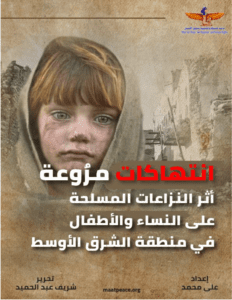 |
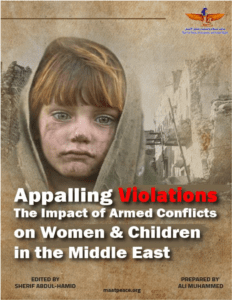 |
shortlink: https://maatpeace.org/en/?p=33068


